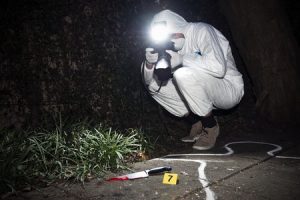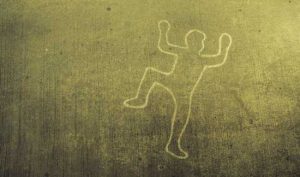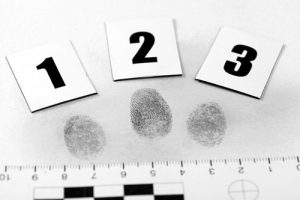Sherlock Holmes was a fictional character created by Sir Arthur Conan Doyle. Originally created for a series of books and novels eventually, the great detective appeared on the small and big screen.
The recent resurrection of the character by Stephen Moffatt and Mark Gatiss, and played by Benedict Cumberbatch, has ignited our interest in how the private detective was seen to solve cases.
In fact, the idea was that Sherlock Holmes and his sidekick Dr Watson could solve crimes by using magic-like powers of deduction, backed by science. There has also been a hint in the modern BBC series that Holmes had high-functioning autism, verging on genius.
Criminology – What is it?
Others suggest that Conan Doyle used a process of deduction and elimination that we still use today.

Many people in modern-day crime detection roles have a broad understanding on criminology and then go on to specialise in certain key areas.
Criminology is the study of all aspects of crime and law enforcement. This includes criminal psychology, the social setting of a crime, prohibition and prevention as well as the investigation and detective methods. It also studies capture and punishment.
There are many people involved – lawmakers, social workers, probation officers, judges, detectives and so on.
Some of the detective means that Conan Doyle has Holmes use to solve crimes are still used today…
#1 Fingerprints
The Sign of Four published in 1890 was the first case in which Conan Doyle included the use of fingerprints in solving a crime. No big deal, you may think, as fingerprinting technology is widely used and understood today.
But what makes this stand out is that Scotland Yard didn’t start to use fingerprinting as part of crime detection until 1901, some 11 years after this story was published.
What makes this even more interesting in that Conan Doyle had Holmes use fingerprints and not a competing forensic theory call ‘bertillonage’. This forensic theory identified and measured the twelve characteristics of the body but Conan Doyle backed the winner, with fingerprinting becoming the preferred forensic method.
#2 Typed Documents
In the age of modern computing, you again may think that again, examining typed print is nothing new. But back when typewriters were common place, Holmes used the small discrepancies between one typewriter and another to detect the criminal.
A Case of Identity was published in 1891 with Holmes solving the crime by comparing the typewriter of the culprit with the letters the victim received. The Federal Bureau of Investigation didn’t start its Document Section analysing this kind of work until 1932, nearly 40 years after Conan Doyle used it.
#3 Handwriting

Criminology is the study of all aspects of crime and law enforcement. This includes criminal psychology, the social setting of a crime, prohibition and prevention as well as the investigation and detective methods. It also studies capture and punishment.
Conan Doyle somewhat exaggerates Holmes’ ability to deduce information from handwritten notes – he can determine gender, whether two note writers are related, determine character and so on.
Although Conan Doyle did over egg this particular subject in the nine stories that featured handwriting analysis, he wasn’t far off the mark.
Today, police and law enforcement agencies regularly review and analyse handwriting. There is also a growing school of thought relating the forensic linguistics and linguistic ‘fingerprinting’, which compares and contrasts the writing of the victim and notes, texts or emails that look to have been written by someone else.
Again, Conan Doyle was years ahead of his time.
#4 What the evidence is telling us
There are times when evidence is in plain sight. In Sherlock Holmes stories, there are frequent references to animals, more specifically dogs.
For example, the police inspector in one story claims that the ‘dog did nothing in the night’. Holmes refers to this as the ‘curious incident of the dog in the night time’, with his suspicions immediately falling on to a culprit.
In another story, a victim’s dog snarled ‘when it shouldn’t’, indicating to Holmes that the culprit was a stranger. In this story, a stranger was masquerading as its mistress and the dog registered distaste and fear by snarling.
In modern crimes, there are many pieces of evidence that act as clues and pointers to who or why a crime was committed. Dogs are used to detect crimes such as buried bodies, counterfeit money, drugs and more.
Studying Criminology
There is no doubt that crime, its detection and prevention is a fast-paced career, enjoyed by many in various roles and guises.
Solving a crime, understanding why it happened and its triggers that give rise to possible prevention methods are studied throughout various Criminology courses online.
Many people in modern-day crime detection roles have a broad understanding on criminology and then go on to specialise in certain key areas.
It is a demanding but rewarding role, with the criminologist being an important cog in the wheel of justice and has been for decades. Is it the right career for you?
November 5th, a time to gather round the bonfire and enjoy the fireworks at an organised display.
Bonfire Night or Guy Fawkes marks the Gunpowder Plot, a failed attempt by Guy Fawkes and his gang of friends to blow up Parliament on November 5th 1605.
The plot can be lost in the commercialism of Bonfire Night, but Guy Fawkes, along with his co-conspirators, were Catholics. They were against a Protestant parliament and a Protestant king and decided the only real way to get their Catholic cause back on track was to blow up parliament with King James in it.
The plot, as we all know, failed. Guy Fawkes was tortured, a confession extracted and the legend was born. To this day, hundreds of years later, effigies of Guy Fawkes are burnt at the stake; candy floss eaten as it burns.
Criminal profile of an arsonist
From a criminology point of view, Guy Fawkes makes an interesting profile. Although not a fictional character, the recording of the crime is somewhat scant. However, a criminology course would look at an arsonist such as Guy Fawkes and examine why he committed the crime that he did (or nearly did).
Motive
Motive is defined as the inner drive or impulse that is the cause, the reason or the incentive why someone commits the crime that they do. Fire, arson and explosions are barbaric. They take planning, which means they take organisation – a pre-meditated crime.
Arsonists, like other criminals, have to rationalise their crime and in the case of the Gunpowder Plot, Guy Fawkes did so by believing his political cause was in the greater good of the nation – or so we assume.
Motive is an abstract concept and unless the criminologist has chance to interview an alleged arsonist, and get to the root cause of what motivates them, conclusions are based on suppositions or opinion.
- Excitement – setting fire to something or causing an explosion can be motivated by pure thrill-seeking. Guy Fawkes could have enjoyed the chaos created by an explosion, watching people run for their lives. It is a way of craving attention and for Guy Fawkes, a means of getting recognition for their cause too. Parliament was also not a benign location; it was important, the seat of power. This was not a small, insignificant gesture, but a grand one. And he had every intention of killing the King.
- Vandalism – some arsonists are motivated to vandalise a building, a malicious or mischievous crime. In some cases, it is just for fun but in others, such as in this case, was to destroy a target that Guy Fawkes and his co-conspirators had grown to hate.
- Revenge – in some cases, an arsonist sets a fire for revenge. If successful, the building and the people in it are obliterated. There are four types of revenge according to criminologists: personal, societal, group and, in the case of Guy Fawkes, institutional.
- Extremism and terrorism – these are words we associate with modern acts of savagery and not with the time of Guy Fawkes. Modern commentators do point to the Gun Powder Plot as being a terrorist one. It is true that if it happened today, it would be labelled as such. In the case of terrorist plots that involve fire, such as bombings, the terrorist will often claim responsibility once the deed is done. We will never know if Guy Fawkes would have done this should the powder kegs have exploded, but the likelihood is that if they had been successful in replacing King James with a catholic princess, Guy Fawkes would have been the hero.
- No discernible motive – in some cases of arson, motivation appears to be lacking. The arsonist themselves have no real reason that they can pinpoint why they did it. In such cases, a criminologist will often determine that the arson attacks are suffering from a mental health illness that affects their level of reasoning.
There are many interesting cases of arsonists who were caught. Their motivations were sometimes clear, and sometimes less so. By looking at past cases, a budding criminologist can often identify patterns in motivation and behaviour. This is known as profiling, an important tool for both the criminologist and law enforcement agencies.
Profiling
A criminology course will examine how criminologists and law enforcement agencies will profile an arsonist after an attack or spate of attacks. Although some of the factors talked about today, such as Attention Deficit Hyperactivity Disorder and so on, were not discussed back at the turn of the 17th Century, there are some interesting similarities between what modern criminologists will look for, and what we know about Guy Fawkes.
The following is a profile of an arsonist, taken from date and information gathered over many years. But does it accurately profile Guy Fawkes and what we know about him?
Arsonists are usually white males, age 17-26 – Guy Fawkes was 35 years old when he enacted the Gun Powder plot in 1605. He was white and came from a relatively well-off family. He did not live in poverty.
Unstable childhood; often one or both parents missing from home – his father died when he was 8 years old. His mother remarried and pretty quickly by all accounts. However, this was the norm in the late 16th and early 17th centuries. Single or widowed women had no income of their own; their only real option was to remarry and to do so quickly. There were other children after Guy, who was the eldest, but only two sisters survived birth.
Abuse or neglect by parents – none recorded
Childhood hyperactivity disorder – none recorded
Poor academic performance – thought to have gone to a Catholic school whilst living in York, St Peter’s. Although there is some speculation the Harrington relatives had influence over his education. The Harrington family was related to the Fawkes’ family and was known to harbour priests. Members of the Harrington family also accompanied him to Flanders when he was attempting to drum up Catholic support for England. His school friends were either involved in the Gunpowder Plot with him, or became priests. One friend was executed for being a Catholic priest in 1601. Guy Fawkes could have interpreted these actions as an attack on him and his beliefs, and was no doubt fuelling his distaste for the Protestant King and Parliament.
Antisocial behaviours and other crimes as an adolescent – none recorded, although the company he kept was not in line with what would be considered at the time as ‘good Protestant families’. His own family and associates were Catholic and not afraid to show their distaste for the King and his Protestant ideals.
Cold or aggressive relationship with father and an overprotective mother – no information exists, although Guy appears to have been heavily influenced by several men including his stepfather, the head at his school, a cousin who became a Jesuit priest and governors at his school.
If married, poor marital adjustment – possibly married and had a son soon after leaving school although there are no accounts that confirm this.
If not married, still living at home with parents – little information, although he lived mainly overseas from the age of 21.
Lack of stable interpersonal relationships and poor social skills – he kept company with fellow Catholics and those who believed in Protestant conspiracy theories. He talked of the ‘evils of Protestantism’.
Poor occupational adjustment – Guy Fawkes was dismissed from his first job in service after leaving school. Anthony Browne, 1st Viscount Montagu took a dislike to him and sacked him. Could Guy Fawkes have been harbouring resentment?
Poor military performance – joined the military, fighting on the side of Spanish Catholics in the ‘80 Years War’. He was involved in all kinds of skirmishes and attempted to raise Spanish support for a Catholic uprising against King James. He adopted the Italian spelling of his name Guido at this time too. Although he was perceived politely, the Spanish King, Philip III received him but took no action. It is thought that Fawkes was recommended for Captaincy during his military career.
Fascination with the fire service – no fire service at the time
Mixed findings on intelligence, but most found to have average to higher intelligence – There is no record of Guy Fawkes’ intelligence, although he was not noted to be an overly-intelligent man. However, there is no mention made of him struggling with his education, nor during his military career.
Alcoholism and/or substance abuse – no information available
Mental Illness or personality disorders, depression, schizophrenia, suicidal tendencies – Fawkes lasted days under incessant torture, giving a false name, and false family details. Although he gave small nuggets of information, it took a level of torture sustained over several hours before he finally gave in, spoke English and gave his torturers the information they desired. He also remained steadfast in his catholic beliefs right until the hangman’s noose. He apologised to the King but refused to renounce his faith.
As a criminologist, you could be part of the process that helps solves crime by examining the motivation about why or how someone would commit such an act.
People commit crimes for all kinds of reasons – out of ignorance or fear, for example. Sometimes they do so as a result of complex psychological reasons or compulsive behaviours. Some people have a blatant disrespect for the law, for the safety of others but other people are not always aware that their actions and behaviours are criminal or breaking the law.
In this complex field, there are many professionals and one is a criminologist. These professionals and their teams work with perpetrators and the victims of crime in an attempt to right a wrong, as well as to inform the criminal justice system of how to work in a way that favours the victim, without trampling the human rights of the perpetrator.
It is a balancing act but presents an opportunity for a dynamic career. It is not a career that suit everyone, but if you enjoy learning how people tick, why people can act in the way that they do and so on, then criminology could be the career-field for you.

Criminology is a wide career field.
A wide career field
Criminology is a wide career field, with many interesting avenues to explore. People with qualifications in psychology and criminology can work in various settings, such as law enforcement agencies, youth work settings, the prison service and so on.
There is no doubt, however, that to work in this field you need not only a heightened sense of self-awareness but also a qualification that underpins your practice. This is why choosing a valuable and valued qualification is key, from your initial qualification to any specialist or advanced course you complete in your career.
Studying from home – do home study courses have the same value and quality?
Many people still assume that there is one drawback of studying online or at home – the courses are not of the same value and not as well respected.
This has changed, as educational establishment and employers, as well as students themselves, realise that just because a student is not sat in a classroom that the course is of a lesser value. In fact, the self-discipline required to study at home can be a skill that is very much needed in a career, including work within the criminology and justice fields.
But how else will you benefit with studying at home?
- Realistically achievable – for many people, committing to a three or four-year degree course is a big chunk of their time and life. A lot can change in a few weeks, let along across three years. Learning new skills, gaining knowledge and so on in a bite-size way makes learning not only more accessible, but success more realistic. It is also a great way of underpinning your ‘on the job’ practice with a sound knowledge base too.
- More affordable – student loans and debt walk hand in hand, with some students leaving university with a level of debt that is frightening. By studying from home, you can make the cost of studying more affordable and not just in the fact that many online courses are much cheaper. You don’t have to take out loans to fund living; you will not be left with a debt either. Better still, you can carry on working and study in an evening, on a weekend, at any time in fact that suits you.
- You set the pace – for many students, learning a new skill, signing up for a new course etc. is daunting. There are many things that concerns students and for some, it is ‘keeping up with the class’. Once you start to fall behind, despondency follows with many students failing to complete their course. With home study, it is YOUR course thus YOU set the pace. NCC Home Learning courses come with a 12-month comprehensive tutor support package so there is no need to worry as help is at hand every step of the way.
Apply today
You do need to be realistic about committing to an online criminology diploma. You will need to commit several hours a week to your study, although when you study depends on you.
But, you can start today! Enrol online either choosing to pay in one lump sum, or in handy instalments. Some courses come in both paper and online format so choose the one that suits you best and the way that you think you will learn best.
You could be taking the first steps into a new and exciting career. Why not find out more about criminology and whether this is the career choice for you?
Criminology is a fascinating area of study. It is the scientific study of crime, its causes and response by law enforcement agencies, as well as examining methods of prevention. It is a sub-group of sociology which is the scientific study of behaviour.
There are many sub-groups within criminology itself, which is why if are looking at exploring this topic, you will find many criminology courses on offer.
However, a significant barrier to people taking on new challenges and learning something new is time. You need to work to pay the bills. Thus you are not afforded the time to enrol at college.
There is another way. This solution allows you to carry on working and live life as you need to, as it allows you to study when you can and when you want. It may sound easy – there will be times when it is tough – but online, home study criminology courses offer you all kinds of benefits…
The process is important, as is the final destination
Studying for a qualification will make a huge difference to your life; it opens up whole new career prospects that until now may have been out of reach. But education and learning is not just about the piece of paper at the end – it is about how you learn as much as it is about what you learn.
With online and home study courses, you will learn to manage and organise your learning, honing your time management skills so that you work to maximum effect in the time you have to do so.
You will learn to order your thoughts, creating a reasoned argument in the form of reports or essays. All these skills you will practice and refine as you go through your course. You will learn self-discipline; you will learn how to find information both online, as well as using other means. Research skills are essential in criminology, as well as questioning the source

You are in control; it is your choice when you study, where you study and you determine the pace.
Your time, your choice
Life is jam-packed with all kinds of activities, as well as your job. It can seem impossible to take on anything else, let alone study criminology courses online.
It will be a challenge, but one that is enjoyable and not insurmountable. Enrolling at college sounds a great idea, but when you look at your schedule, you realise you can’t make every Tuesday evening or the Friday morning lecture and so on.
With home study courses, you won’t face these issues because you study at a time, and a pace and a place that suits you. The 20-minute commute home on the bus is the perfect time to read a chapter from a course book. You can make notes for an essay you are writing whilst cooking the evening meal and the half an hour or so you have ‘spare’ can be the perfect time to make a start on your assignment.
You are in control; it is your choice when you study, where you study and you determine the pace. Not sure about something? Then double-back and take another look. Or if you grasp a concept quickly, move on at a quicker pace.
Continuous assessment – no dreaded exams!
Online criminology courses will have a programme of continual assessment throughout the course, with some also having a larger assessment at the end of the module.
This affords you the possibility of having detailed knowledge on certain key aspects of your chosen course, rather than everything coming down to a final exam or test.
This means that many online courses are marked as a pass, although your tutor may also provide a short statement on how you studied and applied yourself.
Build your knowledge over time
Experience, knowledge and skills are three important factors that you will achieve with online criminology courses but they don’t all come at once. You will acquire a certain skill and, by applying it in different settings and situations; you will become more experienced.
Learning is similar. And when studying a new subject, you need to show that you have acquired knowledge, practiced skills and that you are ready to experience new things, all of which takes time, as well as a smattering of basic study skills too. But with home study courses, you build your knowledge over time, making sure-footed steps every time.
Enrol today
You can enrol online on one of our criminology courses, including ballistics or cyber crime diplomas. You can choose to study in a paper format, or some courses can be accessed online via our secure learning portal. Get ready to build your skills and career using our online courses with qualifications.
You can also pay in easy monthly instalments or pay in one lump sum, whichever suits your situation best – which is the essence of home learning; it is about what suits you best.
This could be one of the reasons why you are searching from criminology courses online. You may also be interested in a career within a related field and having a criminology qualification will be valuable.
What is criminology?
Criminology is the study of crime from a social perspective. For example, what the causes of crime are, the social impact of it and how or why people choose to be involved in crime. People who study criminology hope to better understand what motivates criminals to act in the way that they do.
The work focuses on studying:

Criminology is an interesting area of study and one that can be insightful in so many ways.
- Theories that explain illegal and/or deviant behaviour
- The social reaction to crime – such as why we find some crime more abhorrent than others
- The political landscape of social control
- The effectiveness of anti-crime policies and measures
- Criminals and their crimes
- The crime itself
- And, incredibly important is the impact of crime on the victims
Criminology qualifications are welcomed across a wide sphere of careers and roles such as community development worker, police officer, prison officers, probation work, social work and youth workers.
There are also many other career paths open to you with criminology qualifications too.
Why study criminology courses online?
It is a wide area of study and one that draws students from all walks of life. Criminology is often associated with being an academic subject and in many ways, this is true.
You will look at and study theories, some controversial and others widely accepted, and you will be required to comment on them, or apply them in a practical situation. There can be a lot of reading associated with this kind of study but there is no doubt that if you have a passion for understanding what makes people tick, then this is the area of study for you.
For many people, they feel their career progression or a change of career is hampered by many obstacles and hurdles. They understand that they need to study and gain more qualifications but feel that they cannot take the financial risk of either cutting their work hours or giving up their job completely, to attend college or university.
- Course content and value – we understand that every course we offer needs to have value to it for both you, the student and your employers. This is why we work with leading qualification accreditation bodies so that you can be confident when you sign up to one of our courses, you are signing up to the best.
- Expert tutors – written, developed and tutored by expert tutors, all our courses are enhanced by the tutor team. Not only are our tutors highly qualified, they are also highly experienced with many years of teaching experience, as well as practical skills and experience within their field.
- Generous support packages – for any student, whether you are studying online or in a classroom, support is an integral part of the learning process. Support means different things to different students; for example, you may need guidance and help with writing assignments, but for others it could be time management or how to plan an essay. We have the right support in place, just waiting for you to tap into when you want and need it.

There is another option – self-directed study with online courses. There are many benefits of studying criminology courses online and to do so with NCC Home Learning
- Vibrant online community – learning shouldn’t be a lonely or isolated experience which is why we encourage people to make contact with fellow students, both here at NCC Home Learning and on specialist, topic-led forums you find across the web.
- Self-pacing and managing – studying online means you can complete your course at your own pace. We always advise students to spend as much time as they need on modules so that they have a deep understanding of the topics being discussed. Essentially, however, you set your own learning pace. There are no chasing emails, no lurking deadlines and no pressure, just all-round great support from an expert team.
How to enrol
Enrolling with NCC Home Learning is easy, simple and quick:
- Select a course from our forensic science courses
- Choose the form you prefer – online or paper (not all our courses are available online, so check carefully)
- Choose how to pay – you can pay in one lump sum or choose to pay by instalments
- You are now enrolled and part of an exciting online learning community and looking forward to new challenges!
